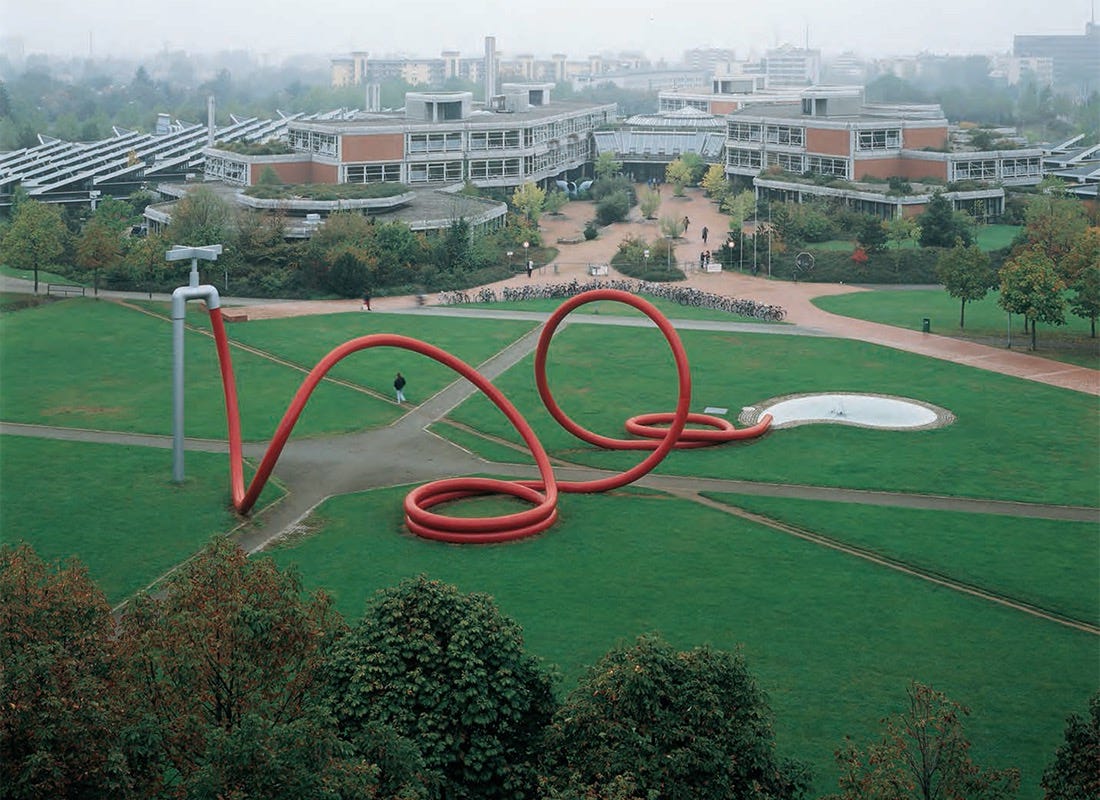#66: how to raise sovereign children
on taking children seriously, not being an adversary, and developing self-trust to mitigate control
Above is an audio recording of me reading this post for those who prefer listening. Thank you, Philipp Kaspar, for the intro music!
I have a vivid memory of waking up one summer morning at a childhood friend’s house. We ate chocolate chip pancakes and picked flowers from her yard to arrange into small bouquets with ribbons tied around the ends. I remember the smell of the stems after we trimmed them and the tough rubbery garden scissors in my hands. I was focused on avoiding the thorns and enveloped by the excitement of imagining my mom pulling up and getting to show her what I’d made. We wrapped the bottom of the bouquet in wet paper towels to keep them fresh on the way home. I couldn’t have been older than 8 or 9 in this memory. I think back on it frequently and feel the same excitement and sense of accomplishment that I did on that day.
Stepping through that memory unlocks a folder of similar ones. Like the days we spent trying to make perfume by collecting random petals and herbs and stewing them in hot water before mixing it all into an absolutely disgusting mixture in a glass bottle. Or the ones in which we’d cover ourselves in red clay at the lake and spend hours choreographing a dance to perform for our parents in hopes that it would somehow convince them to let us have a weeknight sleepover??? A common theme in all of these moments is being completely locked in on the activity at hand. In flow. Time passing swiftly. Having boundless freedom and the encouragement to follow our curiosities.
Taking these childhood curiosities seriously is one of the most powerful things we can do for the formation of one’s self-concept. More on that to come.

Where does curiosity come from?
My dad had a teacher in elementary school who would get really frustrated with him for his incessant questioning. When my dad told us about this teacher, he’d always mimic his thick southern accent saying “JACKSON WHYYYYYYYYY DO YOU HAVE TO ASK SO MANY QUESTIONS?”
I always loved this story because it felt like a clue as to where some of my curiosity came from. I was given a very loose leash as a kid. My parents trusted my siblings and I innately and treated us like small adults. We sat around the dinner table every night and over my mom’s exquisite cooking, we’d go around answering the highlight of our day and the worst part. My siblings and I always cleared the table and did the dishes (upon reflection, Rae really did the brunt of it - sorry sister!! oldest sibling problems). We were then free to do pretty much anything we wanted. We had few rules and a lot of unspoken expectations - like being a decent human being, using our manners, and not leaving our shit around the house unless we wanted the mother wrath to be unleashed. We nearly ripped out teeth when we heard my dad’s footsteps approaching so that he wouldn’t catch us sucking our thumbs until they pruned while watching another rerun of Hannah Montana. My parents were whipping up margaritas by the pitcher for my friends and I before high school parties and lingering in the morning to hear the tales of our debauchery. We came to them before drinking our first beer and asked probing questions about lots of different aspects of life.
And I think we (meaning my 2 siblings and I) turned out pretty damn well! We were often the kids that other parents wished their own kids were more like, we’ve all cultivated a lot of unique interests and followed them courageously, we’ve paved our own paths, colored outside the lines, have deep, fulfilling relationships, and we are all very sensitive, self-aware, and really good friends with each other and our parents. I attribute a lot of this to the unusual amount of sovereignty that we were raised with, which is why the podcast titled “How to Raise a Sovereign Child” caught my eye immediately.
How to Raise a Sovereign Child
I listened to it out of a desire to see how much of it reminded me of my own childhood. The answer is… some. The philosophy and practices espoused in the episode were more extreme than I imagined, like for instance, having no bedtime, no screen time limits, no food rules, no behavioral expectations, no requirements for going to school, or sticking with activities, etc. The rationale behind this childhood anarchy was simple: Do everything in your power to NOT set yourself up as an adversary to your kid. While I can’t fully get behind the complete application of this parenting style, I did really like challenging the way we position ourselves in relationship to our kids in general.
For example, in forcing kids to eat certain foods before they are able to move on to dessert, the kid loses their ability to be interoceptively aware of their own body. They start eating and relating to food as a means to appease a parental authority instead of being taught to listen to their hunger cues and become aware of how different foods make them feel. EAT YOUR BROCCOLI BECAUSE I SAID SO robs a kid of the opportunity to understand the properties of broccoli and how it feels different on their digestion than a sleeve of Oreos.
Adversaries vs coaches
Instead of positioning ourselves as an adversary to our kids, the podcast encouraged parents to be more like coaches. A coach can be consulted in decision-making and is there to help guide you back to your intuition whereas an adversary enforces rules that are strict, rigid, and easy to follow, or at least understand. The main outcome of this is that kids become a lot more independent, self-trusting, and self-sufficient from a young age because they wade through the world guided by their own curiosity instead of in search of their adversary’s approval.
And I think my parents accidentally did a really good job of this coach positioning with me and my siblings. So much so that I’ve occasionally wished I had stricter parents growing up. Because even though I loved the friendly relationship I had with my parents, I did sometimes worry that I would fall behind my peers who had these clear guardrails in place to keep them on track.
Feeling behind as a kid
God I will never forget the humiliation of showing up to school in 2nd grade with the project that my dad helped me make. I don't even remember the requirements but essentially everyone brought in a 3D reconstruction of some special place. I chose Alice's Restaurant on the pier, which my grandpa had owned. The thing about being a sovereign child was that my parents were not waiting with baited breath for me to get home so they could empty my backpack for me and add any new homework assignments to a color-coded family calendar. So naturally, I waited until the 11th hour, a trip to Michael's was out of the question, and we used what we had at home - cardboard boxes, painting tape, and toothpicks. I was really proud of it... that was, before I got to school to see my classmates' massive sculptural reconstructions of fairy gardens that took no less than a month to complete and cost no less than a few hundred dollars worth of Michael's supplies. The contrast was stark: my homemade pier against their professional-looking dioramas, a visual reminder of just how differently I was being raised.
Again, I am so glad I was taught from a young age how to be responsible to and for myself. But I still had this looming curiosity about where my anxiety comes from. Is it because I had such loose reins?
There is an Abraham Hicks quote that says “We are so free we can create our own bondage.” And I really feel that sometimes. As someone who was very perceptive to those around me, I think I recognized this gap in external control between my home environment and that of my friends. It made me both hyper-independent and also super worried that I was going to be behind my peers and would need to concoct some other mechanism of control to keep me afloat: enter years of people-pleasing, dedicating my youth to getting straight A’s like it was a path to salvation, and an eating disorder starting at age … 12!
I do not fault my parents for any of this. And I wouldn’t have changed my childhood for anything because, you already know what I am going to say. It made me who I am. But it does make me curious about how we can continue to raise sovereign, independent children who don’t end up over compensating for control in other areas of life.
Balancing internal vs external loci of control
A lot of this balance comes down to how we navigate our internal vs. external locus of control—and how we learn to lean on the right people (coaches, peers, mentors) instead of carrying everything alone. Which brings me to the second pillar of the podcast: Taking children seriously.
The best way to counterbalance the hyper-independence that sovereign children develop is to provide them with guidance towards seeking out healthy forms of external support. I used to think sovereignty meant total independence—being able to handle everything myself, never needing others, having full control over my body, mind, and choices. But the more I've explored this, the more I realize that sovereignty isn't about control at all. It's about trust. Trusting myself enough to listen to my body, my intuition, my curiosity. And trusting the world (or something greater) enough to know that I don't have to carry everything alone.
I'll use my eating disorder as a practical example because it's a perfect demonstration of internal vs external locus of control. I learned really early that my physical appearance was something that I could manipulate. So when I faced the uncertainty of why doesn't this boy like me or how can I fit in better with my very skinny girlfriends who seem to get a lot of attention, my internal locus went into override and I tried to mitigate these uncertainties by putting them back into the realm of my control, my will, my discipline.
A balanced locus of control, on the other hand, would have meant recognizing that:
Yes, I have some influence over my life (internal locus)—I can take care of my body, express myself authentically, and build confidence in ways that aren't just about appearance.
But I don't have control over everything (external locus)—I can't control other people's preferences, the cultural messaging around beauty, or the social dynamics that dictated who got attention at 12 years old.
Had I been able to trust that my worth wasn’t tied to my ability to manipulate my body, I might have looked for outward guidance and validation in a healthier way- seeking out support, mentorship, or reassurance instead of self-punishment, which in a perverted way, made me feel like I was on the right track.
My healing was catapulted when I met Kat - the quintessential example of a healthy guide - who has transformed both my understanding and application of internal vs external locus of control. She poured fuel on the flame of my desire for self-discovery and spoke in a language that sounded like myself - or how I aspired to sound. Through our conversations and the books she shared, I uncovered a whole world of interests that I had always wanted to explore but lacked the courage to pursue.
Kat taught me how to label my mind so that I could tell the difference between a fleeting thought and “myself.” And in speaking this language with her, I came to find countless others who do the same. I began to surround myself with people who shared in my values and boosted my self-esteem by caring about the same things that I did. I read books that strengthened my relationship to my body and redefined my locus of control. I sought authors, friends, guides, and teachers all over the place who shared in their ability to continuously redirect me back to myself, to my own intuition, to what I already know, which creates a positive loop of strengthening my sovereignty while mitigating the need to control.

Redefining sovereignty
And that's what taking children seriously is really about. Not just giving them freedom, but teaching them how to navigate it. Modeling emotional awareness. Helping them develop both a strong internal compass and the ability to lean on others for guidance when needed. Parents can only do so much – as the sovereign child podcast emphasized, kids are profoundly influenced by who they surround themselves with. My parents gave me the foundation, but it was through my own choices of friends and mentors like Kat that I found healing.
What makes these relationships valuable isn't that they replace my own judgment or become new authorities in my life. Rather, they create spaces where I can practice looking more directly at my own experience. They don't solve my problems or tell me who to be – they reflect back what I already know but might be afraid to face. When we surround ourselves with people who take us seriously—who fuel our interests, push us toward self-trust, and speak the same language of growth—it rewires us.
So maybe the goal isn't to find the perfect mentors or create the perfect childhood environment. True sovereignty comes from developing the courage to look unflinchingly at our experiences – our fears, our desires, our patterns – while also recognizing we don't have to do this work in isolation. It's about building that capacity in ourselves and creating conditions where children can build it too.
The most profound freedom comes not from doing it all alone, but from cultivating our ability to understand ourselves while creating meaningful connections that honor both our sovereignty and our need for community. To be at home in ourselves and, through that self-knowledge, a little bit more at home in the world.
To be sovereign is not to be alone.
That’s all for today! Thank you for getting
- catch you here sometime soon.Char’s Web Song of the Week
Xandra’s Curation Corner
Xandra Beverlin is an incredible art curator at Pace Gallery, co-founder of PULSE, and dear friend, who so generously pulls pieces for this newsletter each week. I text her a few short bullets about the main themes of Char’s Web and she replies with the most thoughtful articulations of the artists that come to mind. This is my favorite part of writing my newsletter. Do yourself the favor of reading her curator’s notes!
“As an only child who was raised with a startling and somewhat frustrating lack of sovereignty, I actually feel that I gravitated more towards it as I got older as a type of coping mechanism in the reverse. I leaned so hard into autonomy in my college and early years living in New York that I ultimately found myself echoing the same rhythms that you’re describing here - clinging heartily to elements I could control and ultimately finding myself on the same path of relearning. It is almost as if I can only really move past the challenges I’m facing if I step outside of myself and honor the communities I’m apart of and/or that I have built by actually letting them in, by being earnest about where I can’t move forward or puzzle something out.
In that sense, I think an interesting way of really visualizing this radical vulnerability is through the work of artist groups or duos. In this case, I’m focusing on Christo & Jeanne-Claude and Claes Oldenburg & Coosje van Brugge: masters of conceptual sculpture and land art with partnerships integral to the success (and scale!) of their practices. After reading a few interviews with both couples, it became clear that the equality of the commitment and unique skillset that each person brought to the table was what lent the work its magic, in an astoundingly more collaborative, nuanced way than a solo “sovereign” artist may have been able to achieve. Christo has a great, sweet rebuttal to one reporter when he only addressed the male half of the duo: “First of all, you should understand that this is not only my project, it’s also Jeanne-Claude’s…Everything else is Christo and Jeanne-Claude, including the creativity. It’s about time that people correct this mistake.” Coosje and Claes similarly asserted that their collaboration was essential—“a unity of opposites.” After developing an idea for a work together, Oldenburg sketched the piece, while van Bruggen chose its colors and oversaw its fabrication and installation. A distinct level of uncertainty, disagreement, and even imperfection likely existed in the creative process for all 4 of these individuals, but ultimately it does seem that taking this risk towards openness may have been the key to unlock the creation of some of the most famous public artworks in the world.”
— Xandra Beverlin
PS if you are interested - the Gagosian is redoing the Gates at The Shed this month! (through March 23)
All past issues of Char’s Web are available for reading here. A few samples below…
#1: A first of many.






